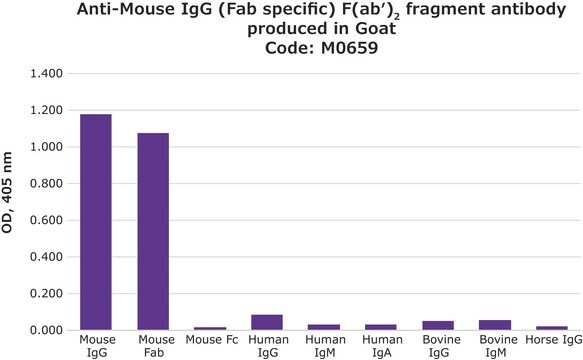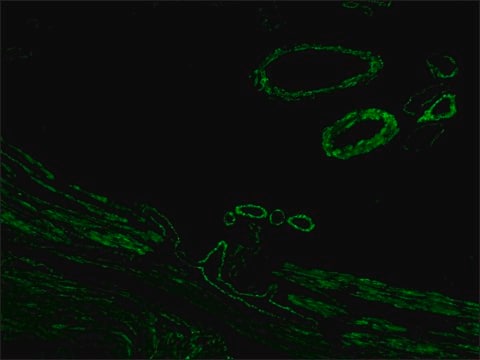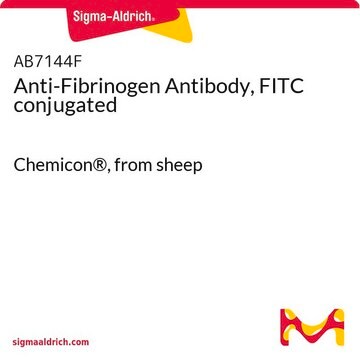F2653
Anti-Mouse IgG (Fab specific) F(ab′)2 fragment–FITC antibody produced in goat
flow cytometry grade, affinity isolated antibody, buffered aqueous solution
About This Item
Produits recommandés
Source biologique
goat
Niveau de qualité
Conjugué
FITC conjugate
Forme d'anticorps
affinity isolated antibody
Type de produit anticorps
secondary antibodies
Qualité
flow cytometry grade
Clone
polyclonal
Forme
buffered aqueous solution
Technique(s)
flow cytometry: 1:100
immunohistochemistry (formalin-fixed, paraffin-embedded sections): 1:160
Température de stockage
−20°C
Modification post-traductionnelle de la cible
unmodified
Vous recherchez des produits similaires ? Visite Guide de comparaison des produits
Description générale
Spécificité
Useful when trying to avoid background staining due to the presence of Fc receptors.
Immunogène
Application
- indirect immunofluorescence staining
- immunofluorescence staining
- flow cytometry
Flow cytometry/Cell sorting (1 paper)
Actions biochimiques/physiologiques
Autres remarques
Forme physique
Notes préparatoires
Clause de non-responsabilité
Vous ne trouvez pas le bon produit ?
Essayez notre Outil de sélection de produits.
Code de la classe de stockage
10 - Combustible liquids
Classe de danger pour l'eau (WGK)
nwg
Point d'éclair (°F)
Not applicable
Point d'éclair (°C)
Not applicable
Équipement de protection individuelle
Eyeshields, Gloves, multi-purpose combination respirator cartridge (US)
Certificats d'analyse (COA)
Recherchez un Certificats d'analyse (COA) en saisissant le numéro de lot du produit. Les numéros de lot figurent sur l'étiquette du produit après les mots "Lot" ou "Batch".
Déjà en possession de ce produit ?
Retrouvez la documentation relative aux produits que vous avez récemment achetés dans la Bibliothèque de documents.
Les clients ont également consulté
Notre équipe de scientifiques dispose d'une expérience dans tous les secteurs de la recherche, notamment en sciences de la vie, science des matériaux, synthèse chimique, chromatographie, analyse et dans de nombreux autres domaines..
Contacter notre Service technique











